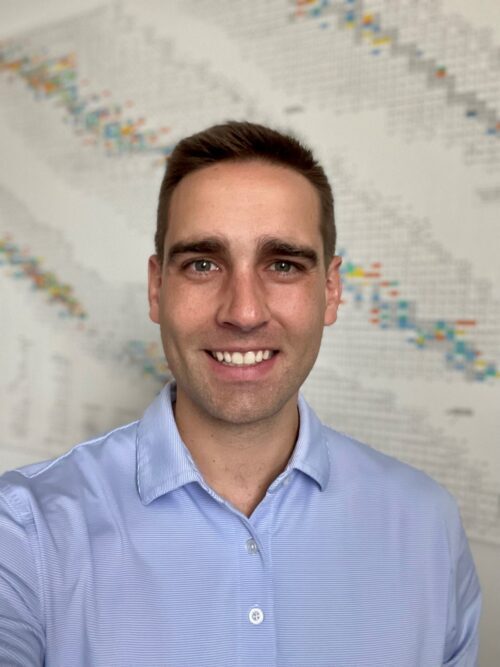Health Sciences graduate supports groundbreaking research, lifesaving therapies in radiation safety
Written By: Rebecca Hoffa, rhoffa@purdue.edu

Ian SchallerPhoto provided
Upon graduating high school, Purdue University College of Health and Human Sciences alumnus Ian Schaller knew he wanted to pursue a STEM career, but doing what, he wasn’t entirely sure. When he found the School of Health Sciences’ health physics concentration within the radiological health sciences major, he was intrigued to learn more. This set him on his journey of understanding radiation and helping others work with it safely.
“We take for granted the dangers of driving a car, but since we all know and understand how to drive, we accept those dangers every day,” Schaller said. “Because very few of us know and understand the basics about radiation, it is generally feared, and we don’t want to be around it. Radiation has an abundance of benefits — many lifesaving — and as long as we educate ourselves on working with it safely, we can take advantage of its uses. And much like driving a car, we have to respect the hazards. If you don’t, you risk having an accident.”
Schaller began his career at Argonne National Laboratory as a health physics technician after graduating from the School of Health Sciences in 2010. In that role, he was able to support the researchers and engineers to ensure they were safely and compliantly using radiation in their research. While many of his peers went on to graduate school, Schaller was glad he decided to enter the workforce upon graduation, earning valuable experience.
“Argonne is a research lab for the U.S. Department of Energy where some of the most novel work is being done to expand the nation’s scientific and engineering capabilities,” Schaller said. “Many of the facilities there are unique to the United States if not the world, so I am grateful to have gained a lot of valuable experience supporting the mission of a very large-reaching science and technology lab.”
During his 10 years at Argonne National Laboratory, Schaller quickly moved through the ranks, being promoted from heath physics technician to health physicist and then later to deputy radiological safety officer.
“I left there in a position that I was really proud of reaching early in my career,” Schaller said. “I credit my willingness to listen, curiosity, and ability to adapt in an ever-changing R&D (research and development) environment. I had a great team around me to learn from.”
Earlier this year, Schaller began a new opportunity at pharmaceutical and medical product distribution company Cardinal Health, working in its pharmaceutical segment as a radiation safety manager, manufacturing a radioactive cancer therapy drug. In many ways, Cardinal Health has allowed Schaller to see the research he supported at Argonne National Laboratory come to fruition in a manufacturing setting.
“One particular program I supported at Argonne involved the development of radioactive materials to be used in medicine for diagnostic and therapeutic purposes, which I now support at Cardinal but at the commercial manufacturing scale,” Schaller said. “At Argonne, we did scientific research, so companies like Cardinal can leverage their manufacturing and distribution strengths to get these radiopharmaceuticals to patients. I have now come full-circle in terms of the work I’m supporting — from supporting proof of concept to now supporting work that actually brings products and goods out to the market for distribution and sale, both having unique challenges.
“The particular work we are doing at Cardinal is novel in itself. Understanding the technical properties of radiation is really important when working with radioactive materials at the manufacturing level. Patients are relying on us to get our radiopharmaceuticals produced.”
As both a former Purdue health physics student and someone who has hired many candidates from Purdue, Schaller noted that undergraduate students who start their journey in health physics at Purdue are on a strong path to success in the field. He advises students take full advantage of their time at the University by reaching out to and learning from Purdue alumni.
“Every individual that I’ve interviewed from Purdue or have worked with that went to Purdue has been a top performer,” Schaller said. “Purdue teaches the theory and application of radiation safety at a high level, and that’s really respected in the health physics community. I would say Purdue’s health physics program is the standard for education in radiation safety.”